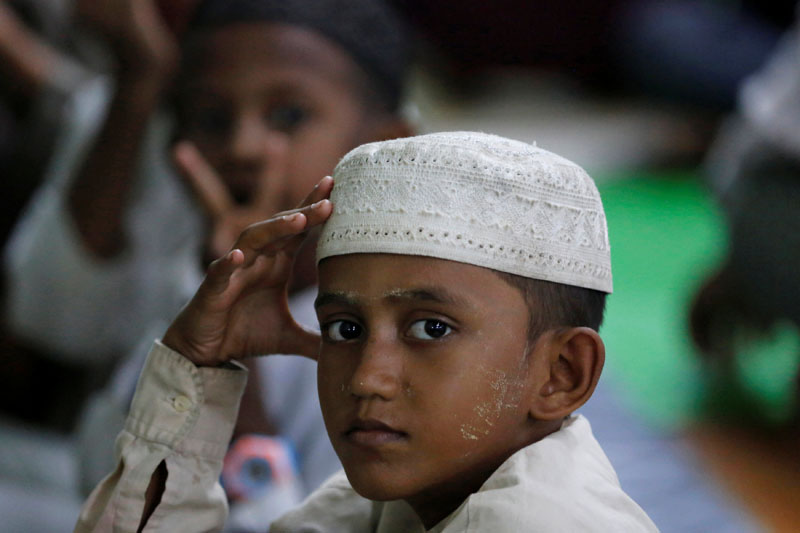In Myanmar, religious tensions simmer as madrassas shuttered
YANGON: Chit Tin, a 55-year-old Muslim man has prayed at the same madrassa in eastern Yangon his whole adult life, most of it spent under a junta that crushed opposition, ruined Myanmar's economy and turned it into an international pariah state.
But even as the father-of-four endured poverty and isolation, the Muslim religious school, which doubles as a mosque, had remained a focal point of his community - until a month ago, when Buddhist nationalists raided it and forced authorities to shut it down on the grounds it did not have a permit to operate as a place of worship.
When Ramadan, the Muslim holy month, started some three weeks ago, hundreds of residents braved the monsoon rain to join prayers organized in the street nearby. Local authorities banned the event and threatened those attending with jail.
"I feel deeply sad, as if the sky has fallen down," said Chit Tin, one of the few Muslims from the neighborhood who agreed to speak to Reuters. Most residents refused to discuss the restrictions, saying they feared repercussions.
One of the youth members of the community, Moe Zaw, now faces a fine or six months in jail for not obtaining a permit to organize the prayers, according to a notification he received from a court.
The closure of the religious school is among a series of incidents that have stoked religious tensions in the country's commercial capital in recent weeks.
Although some of the Buddhist hardliners involved were arrested, human rights monitors say the incident shows how Aung San Suu Kyi's 14-month-old civilian administration is struggling to tackle discrimination against Muslims.
Suu Kyi's ruling party, the National League for Democracy (NLD) did not field any Muslim candidates in the historic 2015 election that elevated it to power on pledges of modernizing the country and democratization.
Tensions between the two communities have simmered since scores were killed and tens of thousands displaced in clashes between Buddhists and Muslims accompanying the start of the country's democratic transition in 2012 and 2013.
"Mosques and madrassas that have been forcibly shuttered should be immediately re-opened, and religious believers should not be threatened or criminally charged simply for exercising their fundamental right to observe and practice their religion," said Phil Robertson from watchdog Human Rights Watch.
Local administrators refused repeated requests for comment. Myanmar's government spokesman was not available for comment, and two other government officials contacted by Reuters declined to comment.
NO REPLY
The madrassa, opened nearly half a century ago, typically attracted around 1,000 people on Friday nights. Around 300 children between the ages of five and 12 studied Islam there daily.
The two-story building is now cordoned off by barbed wire and the gate is locked.
"The children were about to sit exams, so we feel it's a big loss for their education," said Chit Tin, whose two 6-year-old grandchildren started classes at the madrassa a year ago.
He now attends another mosque 20 minutes walk away, where the congregation has swelled from 5,000 to 8,000 in recent weeks due to the closure of his madrassa and another nearby that was also targeted by Buddhist nationalists.
In the city of Meikhtila, 500 km (310 miles) north of Yangon in central Myanmar, three private homes that have been used by about 150 people for prayers since mosques in the city were destroyed in the 2013 violence were also ordered to close down by local administrators.
The police has been patrolling the neighborhood since last week, checking whether the houses have stayed closed and whether the prayers have ceased during Ramadan.
"Since the authorities don't allow us to pray anymore, we requested them to arrange a suitable place for us," San Win Shein, an Islamic scholar and a secretary of a local inter-faith group told Reuters by telephone. "There is no reply until now."






